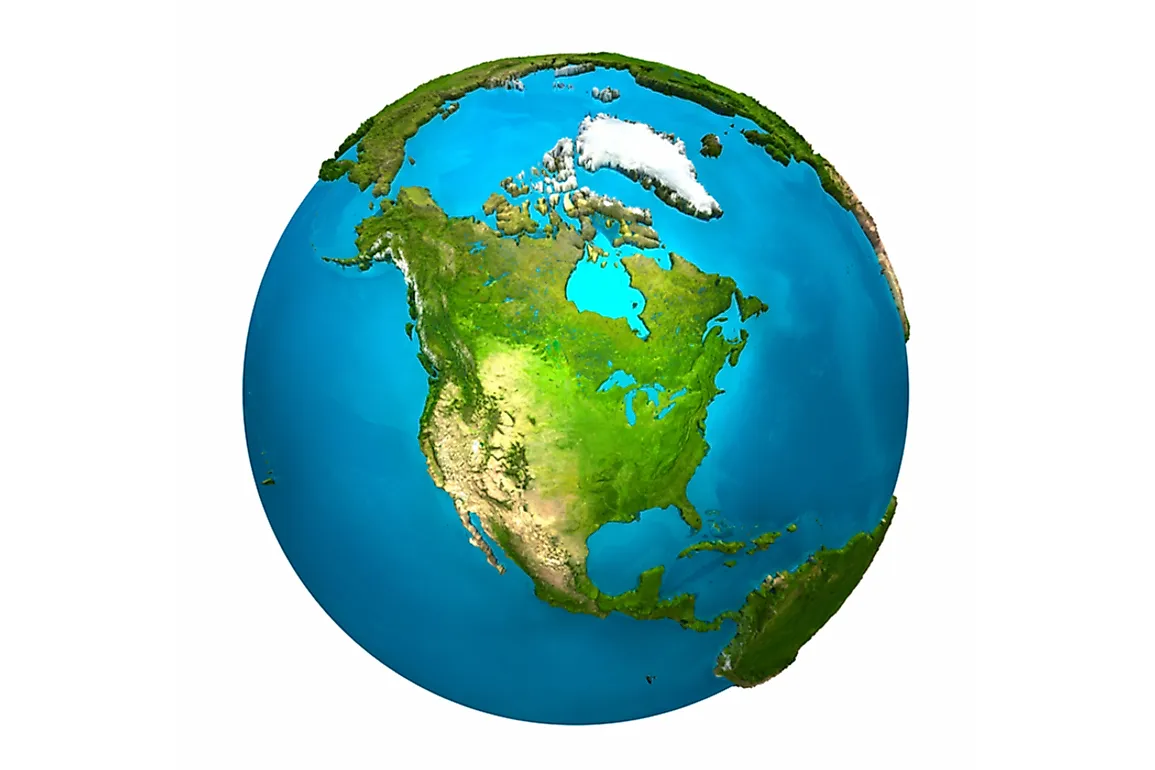Which Continent Borders Three Oceans?

The word ocean has its roots in the ancient Greek word Okeanós which was a divine figure that personified the seas in the Ancient Greek and Roman traditions. According to the Hawaii Pacific University Oceanic Institute, ocean encompasses approximately 70% of the earth's total land area. The information also indicates that oceans contain nearly all of the world's water as they contain close to 97% of the total water globally. There are five recognized oceans in the world with the Pacific Ocean occupying the most significant area while the Arctic Ocean occupies the least area. Continents are vast land masses that cover a significant portion of the world's surface area. There are seven recognized continents in the world with Asia occupying the most significant area and having the highest population while Australia occupies the least area and Antarctica has the lowest population. Two oceans usually surround continents, but North America and Asia are unique since they are bordered by the three oceans.
North America
North America is one of the largest continents on earth as it occupies a region about 9,540,000 square miles wide. In 2016, about 579,024,000 people lived in North America which was approximately 7.79% of the world's total population. North America is made up of approximately 23 nations with the United States, Mexico, and Canada occupying the most significant area. The oceans that border North America are the Atlantic, the Pacific, and the Arctic Oceans. The Arctic Ocean is situated on the northern edge of the continent while the Atlantic Ocean is situated on the continent's eastern edge and the Pacific Ocean borders it on the western and southern edges. Apart from the oceans, the Caribbean Sea also borders North America.
Role of the Oceans in North America's History
These three oceans have played a major role in the history of the continent as many people sailed on their waters to get to North America. Human habitation in the northern region of the continent, close to the Arctic Ocean, dates back close to 50,000 years ago. Human societies crossed the Bering land bridge into North America from Siberia. The Pacific Ocean, on the other hand, mainly facilitated the movement of explorers from Europe to North American nations such as Mexico. The oceans facilitated the colonization of North America by European states such as Spain, France, and Great Britain. Great Britain established its initial thirteen colonies in the US along the coast of the Atlantic Ocean since they considered it to be the most accessible region. Some of the major towns in the US such as New Haven and Boston were built on the coast of the Atlantic Ocean during the colonial period. Several important cities in Mexico such as Veracruz were also built along the Atlantic Ocean during the colonial era.
Asia
Asia is the world' largest continent as it occupies an area of 17,212,000 square miles which is roughly 29.5% of the world's total land area. It is also the world's most populous continent as in 2016 it was home to roughly 4,436,224,000 people which at the time was almost 60% of the world's total population. Asia is made up of 48 nations with Russia, China, and India occupying the largest land area. The three oceans that border Asia are the Indian, the Pacific, and the Arctic Oceans. The Pacific Ocean is situated on Asia's eastern edge while the Indian Ocean is located on Asia's southern edge and the Arctic Ocean is situated on the continent's northern edge.
Role of the Oceans in Asia's History
The oceans played a vital role in opening up Asia as they allowed communities to move from other continents into Asia. Communities also moved from Asia to other continent using the oceans. Some of the earliest civilizations in Asia such as the ones in Mesopotamia and India developed along the Indian Ocean. Trade along the oceans also led to the emergence of several strong kingdoms within Asia's boundaries. The kingdoms could trade with other continents such as Africa and Europe and increase their wealth. The oceans also made it easier for European colonial powers to establish colonies in Asia. The British relied heavily on the oceans to maintain control of colonies such as India and China.
Economic Importance of Bordering Three Oceans
Asia and North America have obtained significant benefits from the bordering three oceans such as vast fishing grounds. The nations within the two continents can exploit the vast fishing grounds and get large quantities of fish. Fishing is a major industry on both continents as it employs a large number of people. The tourism industry in the two continents also benefits greatly from the fact that they border three oceans. A large number of sandy beaches along the coastlines of the oceans attract vast numbers of tourists annually. Tourists also visit the region for scuba diving and explore unique marine life within the oceans. The oceans have also improved trade between the two continents and other continents around the world. A significant number of ships transport products from one continent to another through the oceans.
Conserving the Oceans
Governments and organizations around the world are dedicated to protecting and conserving oceans due to their importance to human development. One of the major challenges facing the oceans is the dumping of waste mainly plastics into the water. The plastic poses a great risk to fish and other marine life in the ocean because they could consume the plastic, and people may later eat the fish. Another major threat facing the oceans is constant oil spills from tankers transporting oil. The oil reduces the amount of oxygen dissolving in the water which causes the death of large numbers of marine organisms. Some of the strategies used in marine conservation include educating the public on the importance of the ocean and making it illegal to dump in the oceans. Some of the organizations involved include Blue Frontier Campaign and Sea Shepherd Conservation Society among others.











